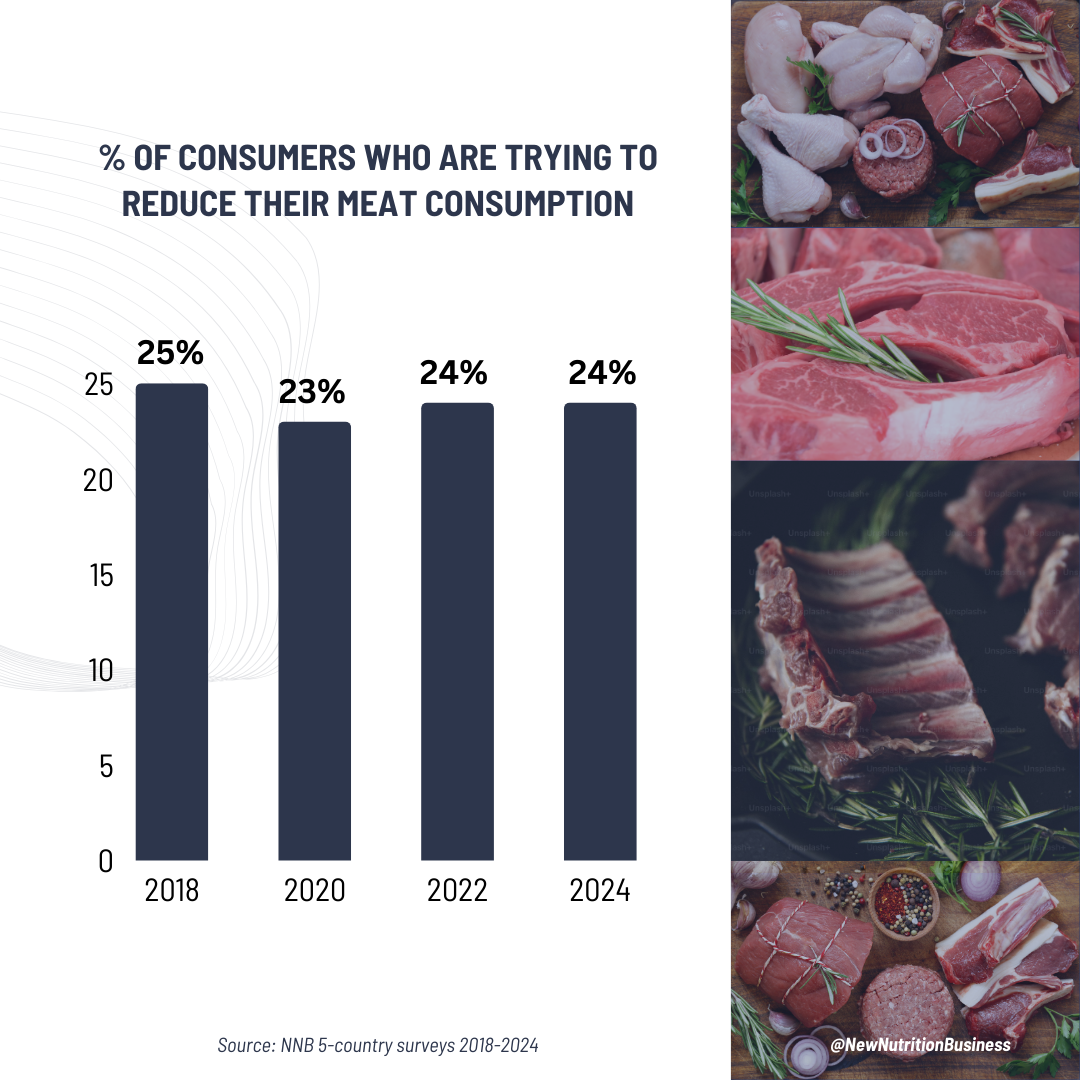The consumer trend of meat reducing has plateaued - as all trends eventually do - according to the New Nutrition Business 5-country survey. This is happening in most countries.
In some countries meat reducing is a declining behaviour. In America, for example, flexitarians have fallen from 18% of consumers to 12% over the last four years, according to analysis by 210 Analytics, LLC. And in Sweden, 24% claimed to have increased their consumption of red meat and poultry in 2024 according to a consumer survey from Orkla.

Meat reducing is a behaviour that skews strongly towards older consumers, who have heard anti-meat messages for the last 50 years. Younger consumers (particularly those aged 18-44) have heard very different messages about the value of nutrient density and protein quality and many are now increasing their consumption of fresh red meat.
If your strategy assumes that there's going to be a "protein transition" and that consumption of animal protein is going to decline, think again.

